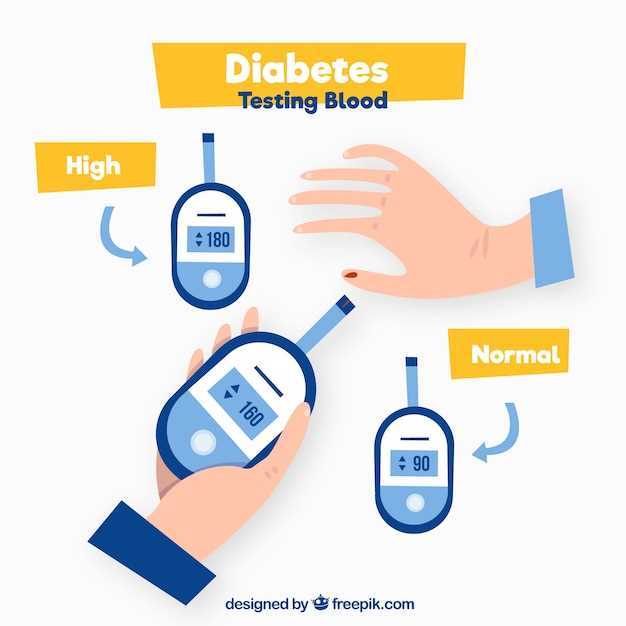
When it comes to effectively managing diabetes, one crucial aspect that often goes unnoticed is the proper care and attention given to the feet. The feet, being the foundation of our mobility, play a vital role in our overall well-being. In the context of diabetes, foot care takes on even greater importance as individuals with this condition are more susceptible to foot complications.
Foot care in diabetes management involves a comprehensive approach that encompasses regular monitoring, preventive measures, and timely intervention. Diabetes can lead to nerve damage and poor blood circulation, which can result in a loss of sensation and delayed healing of foot injuries. This makes individuals with diabetes more prone to developing foot ulcers, infections, and other serious complications.
By prioritizing foot care as an integral part of diabetes management, individuals can significantly reduce the risk of developing foot problems and improve their overall quality of life. Regular foot examinations, proper hygiene, and the use of appropriate footwear are essential components of an effective foot care routine. Moreover, early detection and prompt treatment of any foot issues can prevent them from escalating into more severe conditions that may require invasive interventions or even amputation.
Preventing Diabetic Foot Complications
Ensuring the well-being of individuals with diabetes involves proactive measures to prevent complications related to their feet. By implementing effective preventive strategies, individuals can significantly reduce the risk of developing serious foot problems that can lead to amputation or disability.
Regular Foot Examinations

One of the key steps in preventing diabetic foot complications is to undergo regular foot examinations. These examinations, conducted by skilled podiatrists, help identify any potential issues at an early stage. By detecting problems such as nerve damage, poor circulation, or foot deformities, appropriate interventions can be initiated promptly to prevent further complications.
Proper Foot Care Practices
Adopting proper foot care practices is crucial for individuals with diabetes to prevent foot complications. This includes daily washing and thorough drying of the feet, paying close attention to areas between the toes. Moisturizing the feet with a non-irritating lotion can help prevent dryness and cracking. Additionally, individuals should trim their toenails carefully and avoid cutting them too short to prevent ingrown toenails.
- Wearing Appropriate Footwear
- Choosing the right footwear is essential in preventing diabetic foot complications. Individuals should opt for shoes that provide adequate support, cushioning, and protection. Shoes should have a wide toe box to prevent pressure on the toes and should be made of breathable materials to reduce the risk of infections. Regularly inspecting shoes for any signs of wear and tear is also important.
By following these preventive measures, individuals with diabetes can significantly reduce the risk of developing diabetic foot complications. Regular foot examinations, proper foot care practices, and wearing appropriate footwear are essential components of a comprehensive approach to managing diabetes and maintaining foot health.
Early Detection and Treatment of Foot Problems

Recognizing and addressing foot problems at an early stage is crucial for individuals with diabetes. Identifying potential issues before they escalate can help prevent complications and improve overall foot health. This section highlights the significance of early detection and treatment in managing foot problems associated with diabetes.
1. Prompt identification of symptoms: Being vigilant about any changes or discomfort in the feet is essential. Regular self-examinations and awareness of common symptoms such as numbness, tingling, pain, swelling, or sores can aid in early detection.
2. Regular foot screenings: Routine foot screenings conducted by a podiatrist or healthcare professional are vital for individuals with diabetes. These screenings assess circulation, nerve function, and overall foot health, enabling early identification of any abnormalities or potential problems.
3. Timely intervention: If any foot problems are detected, prompt intervention is necessary to prevent further complications. Treatment options may include proper wound care, infection management, orthotic devices, or footwear modifications to alleviate pressure points and promote healing.
4. Education and self-care: Empowering individuals with diabetes to take charge of their foot health is crucial. Providing education on proper foot care practices, such as regular washing, moisturizing, nail trimming, and wearing appropriate footwear, can help prevent foot problems and promote early intervention.
5. Collaborative approach: Effective management of foot problems requires a multidisciplinary approach involving podiatrists, primary care physicians, endocrinologists, and other healthcare professionals. Regular communication and coordination among the healthcare team ensure comprehensive care and early intervention when needed.
By emphasizing the importance of early detection and treatment of foot problems, individuals with diabetes can proactively manage their foot health and reduce the risk of complications. Regular screenings, prompt intervention, education, and a collaborative approach are key elements in ensuring optimal foot care for individuals with diabetes.
Customized Foot Care Plans for Diabetic Patients
Individualized foot care plans tailored specifically for individuals with diabetes play a crucial role in managing the health and well-being of patients. These personalized plans are designed to address the unique needs and challenges faced by diabetic patients in maintaining optimal foot health.
By developing customized foot care plans, healthcare professionals can effectively prevent and manage foot complications associated with diabetes. These plans take into account various factors such as the patient’s medical history, current foot condition, and lifestyle choices. They aim to provide comprehensive guidance on foot care practices, including regular monitoring, proper hygiene, and appropriate footwear choices.
A key component of customized foot care plans is education. Patients are educated on the importance of daily foot inspections to identify any abnormalities or signs of potential complications. They are also provided with guidance on how to properly clean and moisturize their feet, as well as how to trim their nails safely. Additionally, patients are educated on the significance of wearing well-fitting shoes and the potential risks associated with improper footwear.
Furthermore, customized foot care plans emphasize the importance of regular visits to a podiatrist or foot care specialist. These healthcare professionals are trained to assess and manage the specific foot care needs of diabetic patients. Through routine check-ups, podiatrists can identify any early signs of foot complications and provide appropriate interventions to prevent further progression.
| Benefits of Customized Foot Care Plans for Diabetic Patients |
|---|
| 1. Prevention of foot ulcers and infections |
| 2. Early detection and management of foot complications |
| 3. Improved overall foot health and quality of life |
| 4. Reduction in the risk of amputations |
| 5. Empowerment of patients through education and self-care practices |
In conclusion, customized foot care plans are essential for diabetic patients to maintain optimal foot health and prevent complications. These plans encompass personalized education, regular monitoring, and professional intervention, all of which contribute to improved overall foot health and quality of life for individuals living with diabetes.
Promoting Foot Health and Mobility
Enhancing the well-being of individuals with diabetes involves prioritizing the maintenance of healthy feet and the preservation of mobility. This section focuses on strategies and practices that can be implemented to promote foot health and ensure optimal mobility for individuals living with diabetes.
Regular Foot Care Routine
Establishing a regular foot care routine is crucial for individuals with diabetes. This routine should include daily inspection of the feet, washing them with warm water and mild soap, and thorough drying, paying special attention to the areas between the toes. Regular moisturizing with a diabetic-friendly lotion can help prevent dryness and cracking. Additionally, it is important to trim toenails straight across and avoid cutting them too short to prevent ingrown toenails.
Proper Footwear Selection
Choosing appropriate footwear is essential for maintaining foot health and mobility. Individuals with diabetes should opt for shoes that provide adequate support, cushioning, and protection. Shoes should have a wide toe box to prevent pressure and friction on the toes. It is recommended to avoid high heels, pointed-toe shoes, and shoes that are too tight or too loose. Regularly inspecting shoes for any signs of wear and tear is also important to ensure their continued effectiveness in preventing foot injuries.
- Wearing socks made of breathable materials, such as cotton or moisture-wicking fabrics, can help keep the feet dry and reduce the risk of fungal infections.
- Using orthotic inserts or custom-made shoe inserts can provide additional support and alleviate pressure points.
- Avoiding walking barefoot, especially outdoors, can minimize the risk of cuts, scrapes, and infections.
By following these recommendations and incorporating them into daily life, individuals with diabetes can actively promote foot health and maintain their mobility. Regular check-ups with a podiatrist should also be scheduled to monitor any potential foot complications and receive appropriate treatment if needed.
Reducing the Risk of Amputation
Minimizing the likelihood of limb loss is a critical aspect of managing diabetes. By implementing comprehensive podiatric care, individuals with diabetes can significantly reduce the risk of amputation. This section explores various strategies and interventions that can help prevent the need for surgical removal of limbs.
Educating Patients on Foot Care
One of the key steps in reducing the risk of amputation is educating patients about proper foot care. This includes emphasizing the importance of daily foot inspections, regular washing and drying, and the use of moisturizers to prevent dry skin and cracks. Additionally, patients should be educated on the significance of wearing appropriate footwear and the avoidance of tight-fitting shoes or high heels that can cause pressure points and ulcers.
Regular Foot Examinations
Regular foot examinations conducted by podiatrists are crucial in identifying any potential issues early on. These examinations involve assessing the skin, nails, and sensation in the feet. By detecting problems such as calluses, corns, or infections at an early stage, appropriate interventions can be implemented promptly to prevent further complications.
Furthermore, podiatrists may use specialized tools to measure the blood flow and pressure in the feet, helping to identify any circulation problems that could lead to tissue damage and ultimately amputation if left untreated.
Management of Foot Ulcers
Foot ulcers are a common complication in individuals with diabetes and can significantly increase the risk of amputation if not properly managed. This section focuses on the importance of early detection and appropriate treatment of foot ulcers. It highlights the significance of regular debridement, infection control, and the use of advanced wound care techniques such as dressings, offloading devices, and negative pressure wound therapy.
- Emphasize the importance of regular debridement to remove dead tissue and promote healing.
- Highlight the significance of infection control measures, including the use of antibiotics when necessary.
- Discuss the role of advanced wound care techniques in facilitating the healing process.
By effectively managing foot ulcers, the risk of infection and subsequent amputation can be significantly reduced.
In conclusion, reducing the risk of amputation is a critical aspect of diabetes management. Through patient education, regular foot examinations, and appropriate management of foot ulcers, individuals with diabetes can take proactive steps to preserve their limbs and maintain a high quality of life.
Collaborative Approach to Diabetes Care
A collaborative approach to caring for individuals with diabetes involves a team of healthcare professionals working together to provide comprehensive and effective management. This approach recognizes the complexity of diabetes and the importance of addressing various aspects of the condition to achieve optimal outcomes.
By fostering collaboration among healthcare providers, including podiatrists, endocrinologists, dietitians, and nurses, patients with diabetes can benefit from a multidisciplinary approach to their care. Each member of the team brings unique expertise and perspectives, allowing for a holistic assessment and treatment plan tailored to the individual’s needs.
Collaboration in diabetes care involves regular communication and coordination among team members. This ensures that all aspects of the patient’s health are considered, including foot health, blood sugar control, medication management, and lifestyle modifications. By working together, healthcare professionals can identify potential complications early on and implement appropriate interventions to prevent further deterioration.
Podiatrists play a crucial role in the collaborative approach to diabetes care, particularly in the management of foot complications. They specialize in the assessment, diagnosis, and treatment of foot conditions, such as diabetic foot ulcers and neuropathy. By working closely with other healthcare professionals, podiatrists can provide comprehensive foot care, including regular foot examinations, wound management, and education on proper foot hygiene and footwear.
Overall, a collaborative approach to diabetes care ensures that all aspects of the condition are addressed, leading to improved outcomes and quality of life for individuals with diabetes. By leveraging the expertise of various healthcare professionals, patients can receive comprehensive and personalized care that takes into account their unique needs and challenges.